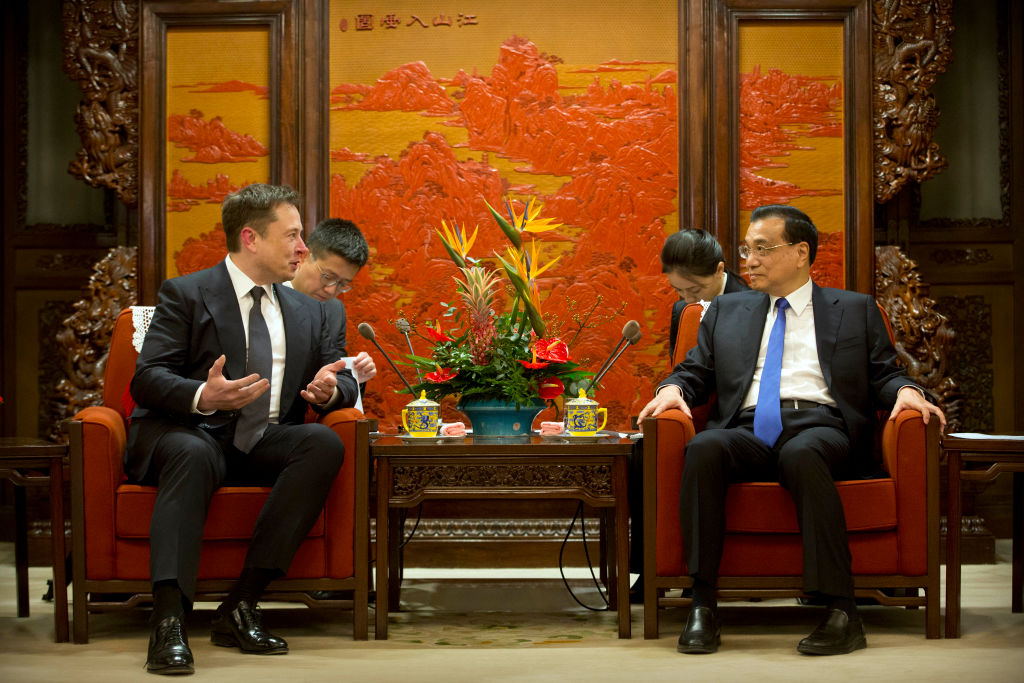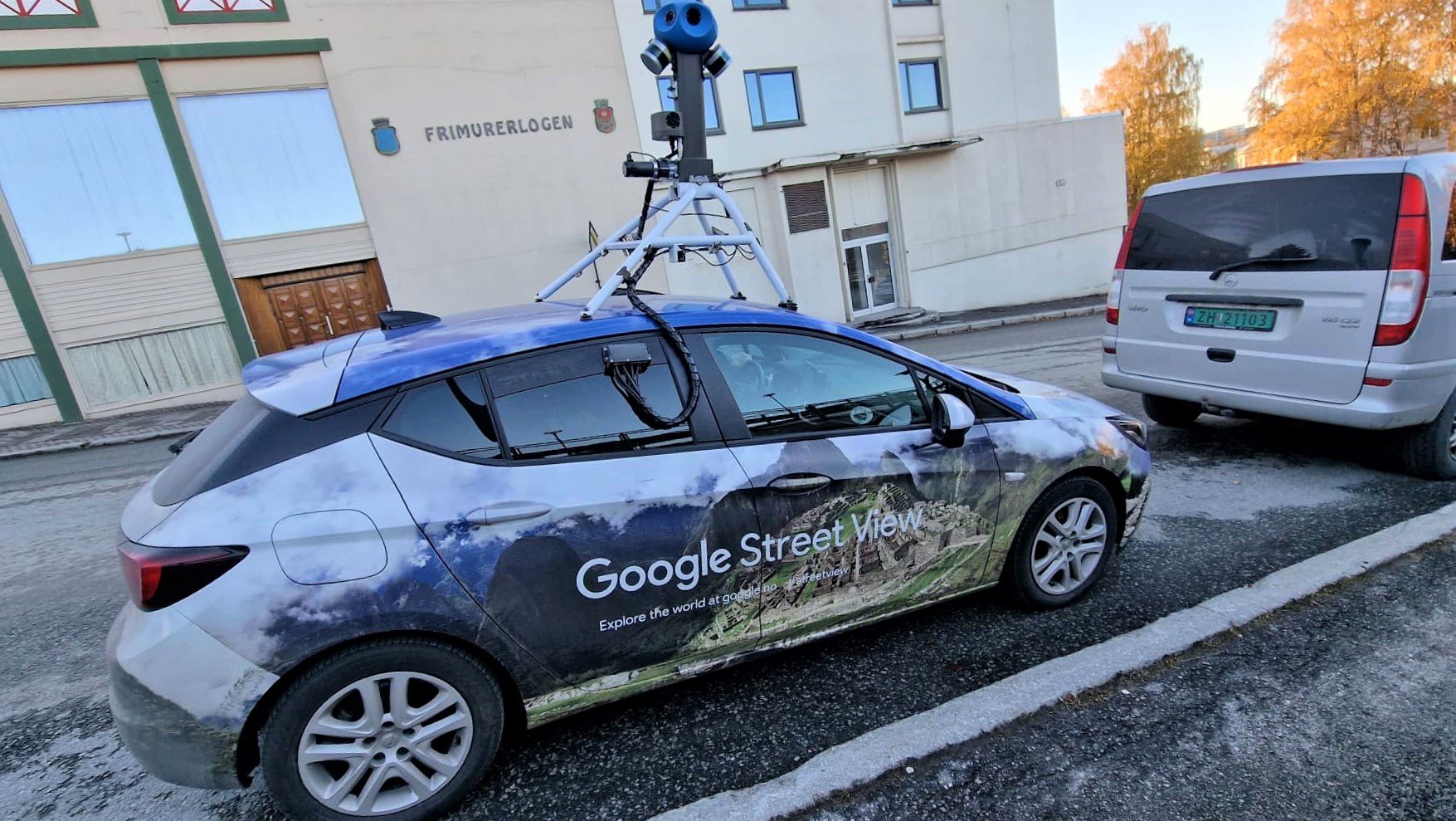Elon Musk has made Tesla dependent on China, and China's rulers realize this. “You own me, and I own you,” Chinese Premier Li Qiang told Musk on April 28. Now is the time to have a national conversation in the US about Musk's ownership of both Tesla and SpaceX. Pictured: Musk meets with then-Chinese Premier Li Keqiang in Beijing on January 9, 2019. (Photo by Mark Schiefelbein/AFP via Getty Images)
At the end of April, Elon Musk canceled a trip to India at the last minute, instead appearing in Beijing and securing a deal to bail out Tesla. The results were immediate: Shares of the electric car maker, which had been out of favor on Wall Street, rose sharply on the news.
Now Washington must be concerned about China's control of Musk's other company, SpaceX, which is critical to America's space ambitions.
During his two-day trip to China, his second in less than a year, the billionaire announced that he had concluded a deal with the Chinese company Baidu for mapping and navigation software. The China Association of Automobile Manufacturers said in a statement on April 28 that Tesla's Model 3 and Model Y vehicles have passed data security requirements in China.
In China, where car buyers focus more on technical features than Americans, Musk wanted to introduce Tesla's “full self-driving” program. Currently, its cars only have the basic “Autopilot” driver assistance function. Most observers assume he is on a slippery slope toward Beijing's approval.
Musk definitely needs an upgrade. Not long ago, Tesla was seen as a leader in China. Now this is no longer the case. BYD and “an entire fleet of electric car startups,” as Asia Times contributor Scott Foster put it, “increasingly look like a regular car company.”
As a result, Tesla's market share is in a downward spiral. A year ago, Tesla was the number one retailer of new energy vehicles in China. In the first quarter of this year, the company fell to third place. BYD sold 586,000 cars in this period, Geely 137,000, and Tesla 132,000. It is not clear whether Tesla is able to compete in China, as the regime does everything it can to favor Chinese competitors.
Musk knows that China is the “golden market for electric vehicles.” Tesla's “megafactory” in Shanghai, which opened in 2019, is the “heart and lungs” of Musk's car production. The facility is Tesla's largest outside America. China is now Tesla's second largest market.
Musk has made Tesla dependent on China, and China's rulers realize this. Unfortunately for Musk, Beijing is having a lot of problems with his other famous project, SpaceX. First, SpaceX stands in the way of China sending a man to the moon before a return visit to the US, and Musk's Starship promises may help the US build moon bases faster. SpaceX is also a major supplier to US defense, and more importantly, the company operates the Starlink satellite constellation in low Earth orbit.
As of last month, Starlink had 5,800 operational satellites in Earth orbit. This represents up to 60% of all active satellites. Musk is considering expanding the constellation to 30,000 satellites, and may now be considering 42,000 of them. China knows that unless it detonates more nuclear weapons in space, it will have a difficult time shooting down all those satellites, which means the US military will almost certainly continue to have access to space in wartime.
“Could producing more Tesla cars in China jeopardize SpaceX’s contracts with various US governments?” William Pesek asked regarding Musk's visit to Beijing.
Pesek, the Tokyo-based Forbes columnist, didn't ask this question out of the blue. The Washington Examiner reported in 2020 that both Cory Gardner, the Colorado Republican who then chaired the East Asia subcommittee of the Senate Foreign Relations Committee, and Senate staff were examining whether NASA's contracts with SpaceX “presented a potential national security risk.” Because of China's financial support for NASA. Billionaire electric car company Tesla.
“What's to stop them from going straight to Musk and saying, ‘We're going to cancel your credit early unless you give us X, Y, or Z?'” a Republican congressional staffer involved in negotiations on the sweeping legislation governing the space agency told the Examiner. “And there's no real clarity that there's any kind of mechanism that would stop this, other than good behavior on the part of the individual.”
“How could America's foremost leader in technological innovation not understand the risks of establishing a deeper, more complex relationship with the Chinese Communist Party?” he asked. asked Blaine Holt, retired US Air Force brigadier general and technology entrepreneur, in a commentary for Gatestone. “Musk's latest agreement requires future steps that must be approved by the Chinese Communist Party in order to achieve Tesla's goals. Musk should expect China to make requests related to technology and data transmission, including Starlink and SpaceX heavy rockets.
“China’s decision on April 28 to allow Tesla to use Baidu’s precise navigation maps to enable full self-driving, thus maintaining its competitiveness in the Chinese market, is Beijing’s way of building its influence over Musk,” Richard Fisher of the International Center for Evaluation and Strategy told Gatestone. . “At the same time, Tesla's relationship with Baidu is moving into the world of big data and could help Baidu with its AI ambitions, which could quickly have military ramifications for China's People's Liberation Army.”
Gardiner's concerns are now more urgent. “Will Congress now look the other way when the Chinese Communist Party’s often-used playbook on corporate extortion unravels and threatens our security?” asks Holt.
Now is the time to have a national conversation in the US about Musk's ownership of both Tesla and SpaceX.
“You own me, and I own you,” Chinese Premier Li Qiang told Musk on April 28.
The words, ostensibly meant to show friendship between the United States and China, were actually a warning. It is now clear that someone who is so dependent on China should not play a central role in America's efforts to stay in space.
Gordon J. Chang is the author of The next collapse of China and cHina is going to waris a Distinguished Senior Fellow at the Gatestone Institute, and a member of its advisory board.

“Web specialist. Lifelong zombie maven. Coffee ninja. Hipster-friendly analyst.”




